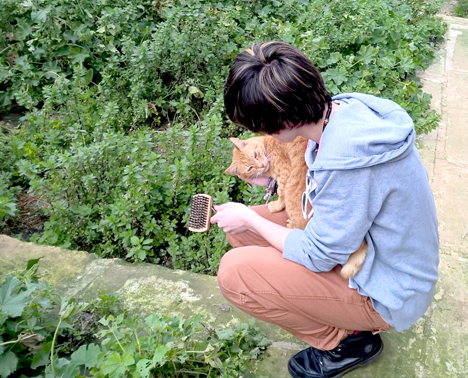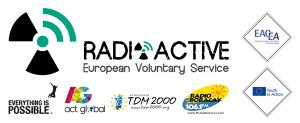Here is Daniel’s testimony about his Leonardo Da Vinci Mobility project in Belgium:
Project supported by ECORYS UK and the Lifelong Learning programme (Now Erasmus+) of the European Union.
Tales from the volunteers
Sunday, May 31, 2015
Empowered From Within – Episode 14 – Daniel’s Leonardo project in Belgium
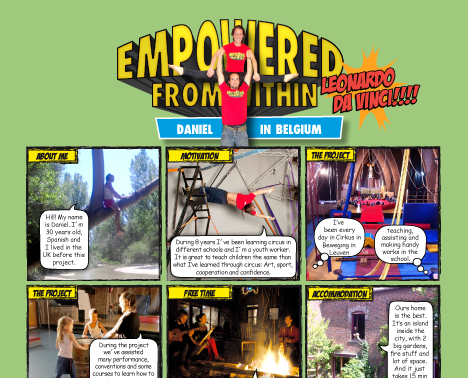
Sunday, May 31, 2015
Empowered From Within – Episode 13 – Ross’s Leonardo project In Sweden
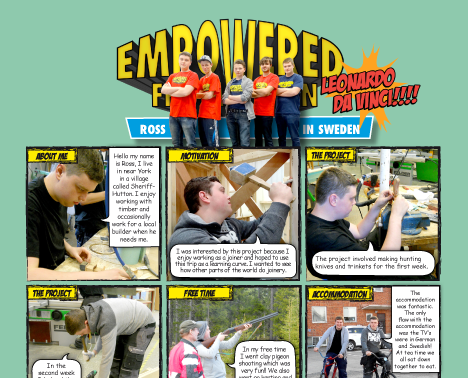
The 13th episode of our comic book ”Empowered From Within” is out!
Discover Ross’ testimony about his Leonardo Da Vinci Mobility project in Sweden:
Project supported by ECORYS UK and the Lifelong Learning programme (Now Erasmus+) of the European Union.
Monday, May 25, 2015
The Power of English – by Katie Williams, EVS ( European Voluntary Service ) volunteer in Jordan
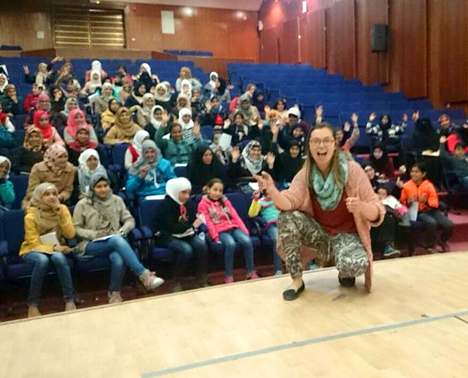
I, like my peers, grew up speaking English. It flowed from us as one would expect a plant to bloom. There is an inevitably and valueless nature to its presence in our lives. Why be grateful for salt, when everyone has it, or at least should? I have never before considered the price of salt, nor have I my mother tongue. I grew to manipulate, disregard and chide my language; like one may treat a dog that will always come back and always be yours, collecting slang and dropping letters. But travelling on the EVS (European Voluntary Service), and more significantly teaching English, has changed that perception.
To begin with, every human I meet is expected to speak some, if more, English. Expected to aid and communicate with me effectively in my mother tongue, apologising, often profusely when, in its native home, a person has to rely on their own language. Every International, expected to converse with me expertly in my language, and it seems, with one another. No effort is expected on my part, for I have a British tongue in my head. Perhaps not even gratitude, for it is my right to call over a taxi and say, “Do you speak English?”, because surely they must.
The inequalities were more startling once I became more familiar with the value of my language to others in their lives. Because of the ever increasing importance of industry, tourism and non-profit organisations, English has become the key to improving and elongating one’s career. Speaking eloquent Arabic and being good at your job is not enough. English is the key to the door between cleaner and manager, between a handful of bleach and money. Britain complains consistently that foreigners are coming over and taking our jobs, but what we cannot see beyond the White Cliffs is that our influence, archaic and imperialistic though it may be, and language is taking foreigner’s jobs. Stifling and restricting them, forcing them to engage in an alien language in their own country.
So thus, we have a gift we did not thank anyone for which is life changing to others, gained by the Great British imperialistic march (arguably, the American influence in the global economy is a significant contributor to the power of English, but one cannot deny where their language stems from either). And suddenly, it is a currency. My mother tongue is worth at least £10 an hour, a gun for hire for those desperate to engage in a foreign industry that stifles their progress. Our ill-begotten gains are still a valuable source of income for us and a yoke across the shoulders of other nationalities.
One of my adult pupils has a motivation and determination that rivals that of British children, crouched behind the bike sheds, hoping to avoid yet more obligatory education. She has never missed a lesson, never missed a note, never failed to thank me as she leaves. When she first entered my class, she neither had the confidence or the ability to string two words together in English. Last week, for the prize of a Snicker (yeah, I know, serious stuff) she retold in English the (also Arabic) story of Red Riding Hood. There were mistakes, there were stumbles, there was the shaking of hands as I placed her on that stage, but she did it. Off her own back, she told a story in English, in entire past continuous tense. She steeled herself against insecurities, fears and linguistic challenges, to do something that left this fluent speaker…speechless.
So there we have it, some gifts are priceless. It just took me 23 years to realise that.
Katie Williams, EVS (European Voluntary Service) volunteer
Click here to visit, Katie’s original article.
European Voluntary Service (EVS) project supported by the Erasmus+ programme of the European Commission.
Friday, May 22, 2015
Rebecca’s VET project in Malta – Erasmus+ – #GFRHcomic n°3
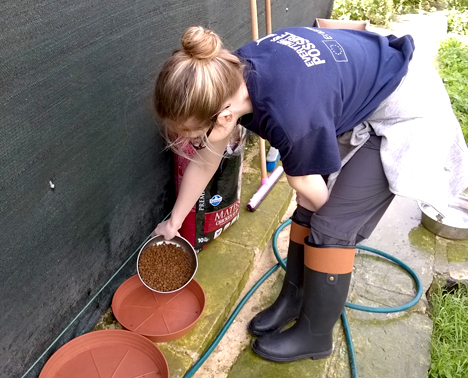
Sunday, May 17, 2015
Derek’s VET project in Malta – Erasmus+ – #GFRHcomic n°2
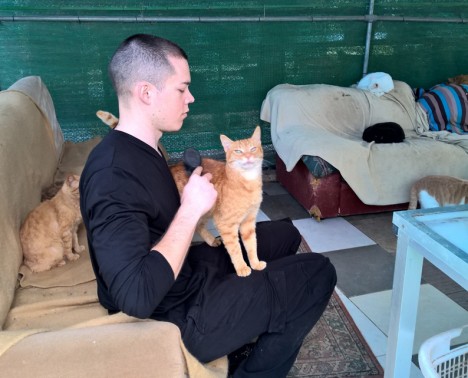
Sunday, March 1, 2015
European Voluntary Service – Throughout Autumn and Winter in Jászberény
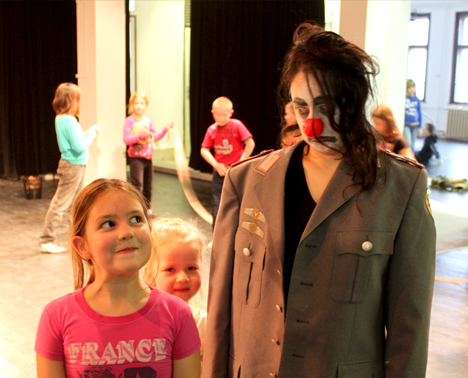
The cold has gradually tightened its grip on Hungary since I started my EVS (European Voluntary Service) project here in September – up until what seems to be the frosty but beautiful climax that is the current period of ice and snow – but our community theatre has been bustling with creative fire nevertheless in the last few months.
First of all, many new groups have been added to our weekly schedule since November, among them a group for adults with learning difficulties and a group in a nursery school. These two have two interesting things in common: the first is that no one person in them or amongst their staff speaks English, which makes me have to try very hard at practicing my Hungarian! (Fortunately I learn it as part of the project). The second thing common to both groups in many cases is the activities – you may be surprised to know that I often use the same games with the adults with special needs and the younger groups of children. I think it’s because they are truly open to anything (if you have worked with people with learning difficulties before you would know this wonderful quality that can be discovered about them). One can say that as result of this they are more in touch with their imagination than other adults going about their adult life with a decent degree of seriousness… and so, similarly to younger children, these people cooperate very well with simple exercises which are about describing what you see from a hot air balloon, for example, or driving a submarine all together through the room.
Second of all, we had quite a few very special events at the theatre in the last few months. For the children’s half term holiday from school at the end of October, which happened to be in the week preceding All Saints Day, we organised special holiday workshops – every day a different activity took place at the theatre: creating decorations (and smothering a good amount of paint on chairs – which definitely added some colour to our staff room, as well as to our floor); Circus Day: a full day of workshops on hula hooping, juggling and clowning (which are each of special interest to one of the staff members who organised the day, me being the “clown person”); elaborate mask making from paper mache (which we made straight on our faces. It was rather spooky to see – about 50 mummies in one room); and the culmination of the week – a Halloween Parade around town with the masks we made and the presentation of short performances devised by the children alone for the occasion. Along with all the physical mess (that was only expected to happen), the week was a big success. We received some very appreciative feedback from children and parents which made us very proud.
Third of all, our awesome Circus Show: myself and my colleagues had created a short performance for the Circus Day, combining our circus skills. We later received an invitation from a local secondary school to perform it again for them in early December. For this purpose we gathered all the five of us at the theatre’s team to create an extended version for older children. We put a lot into the process, planning some scenes together and some separately; in my opinion it came out to be an extremely cool show demonstrating our individual unique abilities as well as the potency of collaboration. The separate scenes were connected at the end in a crazy slapstick chase as result of (well-planned) mix-up and confusion: an angry clown was chasing the hula hooper chasing the circus master chasing the trumpet player responsible for all the fuss chasing his naughty friend chasing the clown…
Finally, a few days later, towards mid December, we presented our end-of-term performances to the parents of all the children attending classes at the theatre. Each of the six groups had devised a show with its teacher, summarising the learning process it has gone through during the term. I devised two shows with my two groups; the younger children (ages 4-7) went on an imaginary mimed journey into the bottom of the earth, and the group of 10 year-olds presented a magical winter tale which was a metaphor for finding our inner fire during long days of darkness and cold.
With every month passing in my ten month-long EVS project, I feel much older and wiser… I only realise there is more and more to learn as things develop and change. The longer I spend with my groups, the better I can understand them: how to best approach them; how to ignite their creativity; how to work on improving relationships within them. My confidence in planning the activities as well in improvising them on the spot according to changing needs grows. Sometimes I have found it a real challenge searching for new ideas, but I’ve learned that a holiday does well to the creative mind – and I’ve returned from my mid-winter one a lot fresher, and thus more open towards my own creativity.
I’m now working on a short mime piece of my own that would be presented to audience at the theatre in late February. Watch this space…
Roni M, EVS (European Voluntary Service) volunteer
European Voluntary Service (EVS) project supported by the Erasmus+ programme of the European Commission.
Saturday, October 18, 2014
European Voluntary Service – First month in Jászberény, Hungary
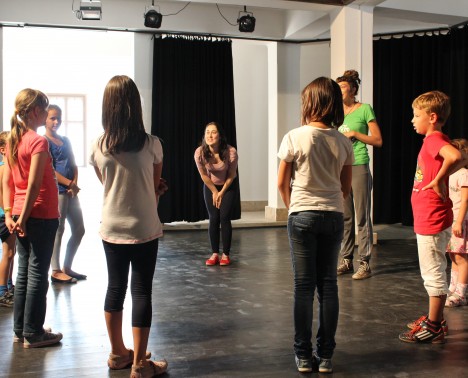
After one year of long wait, the time has finally come to fly to Hungary – and I arrived in Jászberény, a city 80km east of Budapest, with two and a half suitcases and quite a lot of curiosity. I came here to teach drama workshops in English to young people, for the duration of the school year, 10 months. This EVS (European Voluntary Service) position is a wonderful professional opportunity for me, coming at a very appropriate time: after practicing theatre for a few years as a performer and director, it is time to discover how to implement my skills in education, a field I’m very curious about. I recognise that drama, and the arts in general, can be a valuable tool for people, that has the ability to flood the spirit with new energies and provide release, hence transforming emotions, moods and mindsets. Of course that I have experience working with young people, but never before have I been a drama teacher on a full-time basis. This is why I’m very excited about this year ahead (which has already started) and hoping it would be a year of discovery and gaining valuable experience.
Our theatre, Malom Film-Színház, is one of very few cultural institutions in this small city and one of very few places offering creative afternoon activities for youth. As the locals put it, “there is not much happening in Jászberény”. Nevertheless it has a generally friendly vibe, some interesting old churches, and lots of grass and trees scattered around. I’m slowly getting to know more and more nice and welcoming local people, which I find helps me make myself feel more at home. Another thing which helps me “arrive” is the Hungarian lessons we take, slowly making signs around me more intelligible and allowing me to better interact with the locals. As every person in the world has warned me, it is known to be one of the most difficult to learn existing languages – and it is indeed different to any other language I had known so far – but I’m determined!
We’ve opened the year at the theatre with great excitement – and with essential support from the staff involved, namely from our project coordinator Barnabás and our theatre technician Dáni. Me and my two colleagues (Alba, another EVS (European Voluntary Service) volunteer from Spain, and Ashlee, a paid staff member from England, who used to be an EVS volunteer last year) individually teach 13 groups in total: children (in three different age groups), teenagers and adults. Each age group has very different needs, interests and ways of interaction… how interesting is it to discover each group! The younger children, for example, around the ages of 5 and 6, are full of energy and need a fast pace to keep involved and interested. Our 10 year-old girls group has a passion for acting out imaginary stories… And the teenagers are, as expected, mostly into social status – for them it is all about each other and being in a group.
And so the journey with each group in Malom Film-Színház’s workshop space has started, and so far continues with new, interesting discoveries every week about the participants themselves, what stimulates them and how to allow them to access their imagination. To be continued.
Roni M, EVS (European Voluntary Service) volunteer
European Voluntary Service (EVS) project supported by the Erasmus+ programme of the European Commission.
Sunday, October 5, 2014
My European Voluntary Service (EVS) in Indonesia, by Bianca Gerald
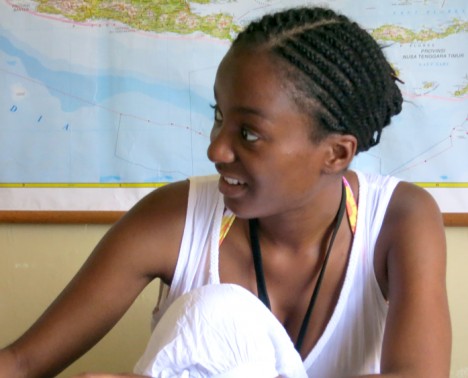
Hai (hello).
May I introduce myself? My name is Bianca Gerald. I reside in England in the UK. I am a singer/songwriter and musician. I am always striving to learn more about the world, different cultures and explore this wonderful earth.
Fast forward to Bali, Indonesia – the destination of my volunteering placement ‘Radio Active’ with my host organisation ‘Act Global’. At the time of writing I am two weeks into my project with a further two weeks left. The reason I chose to take part in Radio-Active the project is because I have a big interest in media, culture, documenting and radio. The opportunity to learn more about these sectors whilst building my skills in these areas was a golden one.
Radio Active is focused on the making of a documentary and a podcast related to any social issue the volunteer/s chose to explore and document/discuss. Day to day life in my project is very fulfilling. I can be based within the office working area editing and preparing my documentary and podcast whilst also planning some extra activities I have decided to do such as a music workshop with local young people and I can also be out and about gathering footage for my project, taking images, interviewing local people and soaking in the culture.
My host organization in their own words:
“Act Global is an international not for profit organisation based in the United Kingdom and Indonesia. Established in 2012, Act Global was set up to support the non-formal education sector by creating international projects that look at global issues such as poverty and inequality, while also creating an international platform for sharing best practice in the sector.
Our organisation focuses around three thematic areas: climate change, poverty reduction and social cohesion. Any project we deliver must meet one or more of these thematic areas. Although the foundation of our projects centres around these ideas, in essence Act Global is a peace programme aimed at developing positive cultural relations between people and nations. We develop and deliver international projects for young people and organisations working with young people, whilst also working closely with our partner NGOs, businesses and other funders. We believe that young people grow best through access to a global education, contact with people from different cultures and being exposed to new positive educational experiences. It’s also our hope that by supporting the development of global citizens, we can foster a more peaceful, sustainable and prosperous world.”
I am staying at a place named Futsal House off of a main road named Jalan Pemogan. I stay with four other volunteers in a house of five. The volunteer accommodation is a 5-minute walk from Futsal House. In terms of food sometimes people eat out at local restaurants named ‘Warungs’ or cook at home. The restaurant food here in Denpasar is cheap and tasty however the downside is that they use a lot of MSG so I have decided to buy my food, fruit and vegetables at the markets and cook at home which really suits the budget living allowance that we are given as well as looks after my nutrition.
During my project so far there has been good and bad with a lot of learning in between. Being from a culture that is not popular in Bali has meant that there have been some very welcoming, beautiful and kind people. However there has also been some people (local and volunteer) who can be quite ignorant to different cultures for whatever reason. This at times has been uncomfortable and also at times alienating however I have strived through it with the reminder of the mission I have in hand and have focused on this.
Professionally working within such a great organization as ‘Act Global’ has meant that I have been able to exercise my qualities such as administration, organizing and workshop leading which is something that both Sebastian and Aine have welcomed and encouraged. I have also learned or more so been reminded that in life we will sometimes have to work alongside or exist alongside individuals who we would not normally socialize with. The ability to do this effectively and progressively is both humbling and life changing at times.
I already knew some basic Indonesian Bahasa language and since being here I have been able to expand and practice this. There is of course a language barrier that I feel I have overcome due to an interest in learning how to communicate, even if minimally.
Spare time has been spent visiting wonderful places like Bali’s cultural centre Ubud which is home to a local natural birth centre ‘Yayasan Bumi Sehat’, visiting the beaches, shops and restaurant and generally admiring the beauty and diversity that Bali has to offer.
This volunteering service is an amazing opportunity and I highly recommend you get in contact with Everything Is Possible (UK) as it could literally change your life for the better.
To conclude it would be fantastic to live a life of travel and world exploration and thanks to ‘Everything Is Possible’, ‘Act Global’ and ‘European Voluntary Services’ I have been able to add international work to my CV which I hope will help me to do just that.
Thank you for reading – signing off. Bianca Gerald, EVS (European Voluntary Service) volunteer
European Voluntary Service (EVS) project
part of EVS Radioactive
and supported by the Youth in Action programme of the European Commission (Now replaced by Erasmus+ )
Sunday, September 7, 2014
Empowered From Within – Episode 12 – Martha’s Leonardo project In Aruba
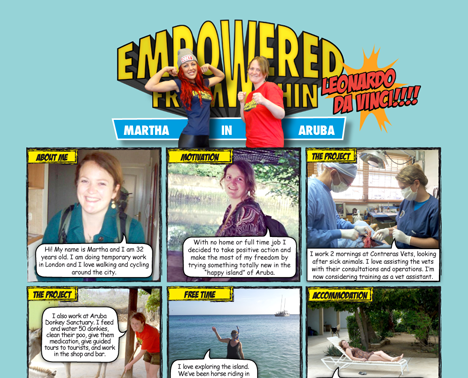
The 12th episode of our comic book ”Empowered From Within” is out!
Discover Martha’s testimony about her Leonardo Da Vinci Mobility project in Aruba:
Project supported by ECORYS UK and the Lifelong Learning programme (Now Erasmus+) of the European Union.

